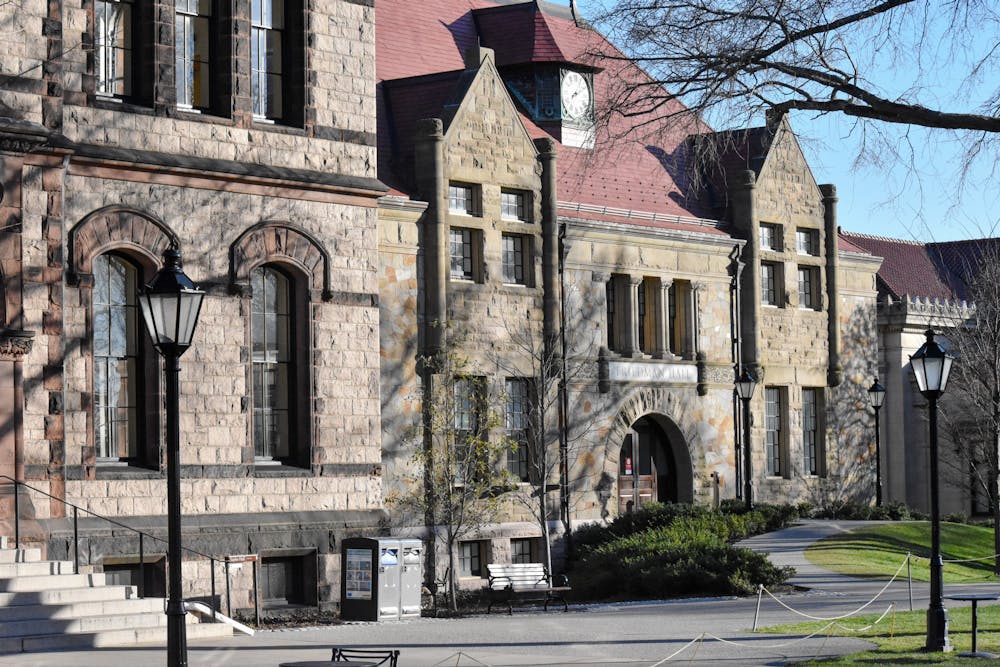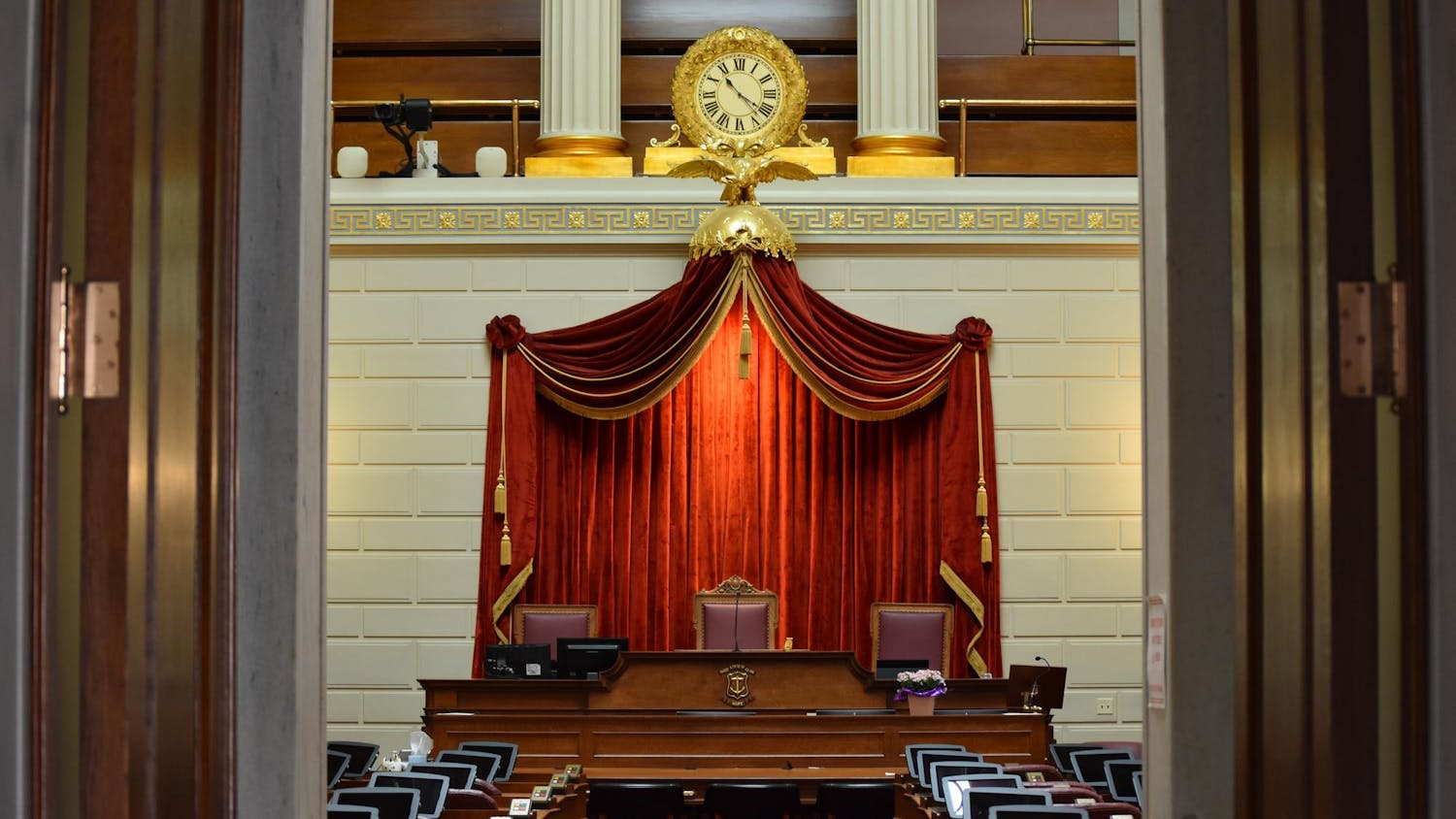Beginning March 14, the University made masking in most settings and asymptomatic COVID-19 testing optional for fully vaccinated undergraduates, The Herald previously reported. While some students and faculty have expressed relief over the loosened guidelines, others have voiced concerns about how these changes will impact public health.
The Herald spoke with students and faculty on campus about their opinions on the updated policies and how the changes have affected their daily life.
Katherine Dokholyan ’22 explained that no longer being required to wear masks in classrooms will “feel foreign” for the first few weeks.
“I don’t anticipate it changing (my life) much,” she wrote in a message to The Herald.
“At a certain point, we were going to have to get to a place where we felt confident enough about vaccination rates and the nature of transmission — in addition to (gauging the) severity of symptoms of the average person — to feel comfortable not wearing (masks) in school buildings,” Dokholyan added. “People (were already) gathering maskless … outside of school.”
Jules Qian ’24 expressed that she trusts the University’s administrators “who are advised by health experts” and “have taken lengthy considerations before making this decision.”
“I totally understand why others may feel uncomfortable with this change,” Qian added. “We’ve been living this for two years and not wearing masks has been deemed incredibly shameful and selfish — so it makes sense why many are reluctant.”
Emma Capps ’23, who is immunocompromised, wrote in a message to The Herald that she firmly opposes the policy because the University is not at COVID-zero. They believe that lifting masking and testing requirements simultaneously will “without a doubt” lead to an increase in COVID cases.
“I have had to email all my professors and ask that they require masks in classes, and I have to avoid places like the mailroom, where nobody wears masks,” Capps wrote.
“I have to be paranoid and afraid all the time. Because I have severe health issues, I cannot be around folks who aren’t masked, and that puts the onus on me to reshuffle my life for the least exposure possible,” she added. “The University has betrayed me and other immunocompromised students and has left us to fend for ourselves.”
Capps added that for her and other students who are immunocompromised, the University’s policy makes them feel ignored. “They don’t want to think about COVID anymore, and if the disabled student population is sacrificed as a result, that’s totally fine with them,” Capps wrote.
"Since the onset of the pandemic, Brown has continually evaluated public health conditions, considered guidance from health and medical experts and adjusted policies for mask-wearing, testing and other health and safety measures with those factors and others in mind,” University Spokesperson Brian Clark wrote in an email to The Herald. “We recognize that community members have a wide variety of perspectives and preferences, that individual comfort levels vary and that there’s often unease associated with changes in protocols.”
Clark added that the University has “moved cautiously and deliberately” when modifying policies, often loosening protocols “well past the point when they’re recommended by health agencies.”
The University is “balancing the need to … protect health and safety with (the) return to a more normal campus experience,” Clark wrote.
Students such as Capps are also concerned over the lack of support they have received from the Brown community.
“I’ve been told to my face by fellow students that I’m being ridiculous, and I’m overreacting, and COVID doesn’t matter anymore, and that I hate letting people have fun,” Capps wrote. “The University has, in many ways, broadcasted similar sentiments, … and it hurts to know that many of my fellow students don’t care.”
Nina Tannenwald, senior lecturer in political science, supports the University’s decision, writing in an email to The Herald that “the Brown community has done a good job managing COVID.”
“The risk of transmission is down now,” she wrote. “I think it's reasonable to lift the mask mandate.”
The removal of campus-wide masking mandates “does make communicating in the classroom a bit easier,” Tannenwald added. “And it's nice to see everyone's faces again.”
Angela Li ’25 explained that she is worried that the lack of mandatory testing will make it harder to assess positivity rates on campus, and that removing masking requirements will increase students’ risk of exposure.
“Brown, along with the CDC, is showing blatant disregard to immunocompromised and disabled students who are more at risk should they contract COVID,” Li wrote in an email to The Herald.
“Immunocompromised and disabled (individuals) would not and should not have to remove themselves from society and daily interaction with people just for us to regain some small semblance of ‘normalcy,’” Li continued, adding that she aims to advocate for mask wearing within the school community.
Gaurav Rathore ’24 praised the policy for allowing students to be unmasked in dining halls, where masks are generally removed anyways, but continuing to require masks in shuttles and other close-contact spaces.
Joseph O’Brien ’24 wrote to The Herald that, with the new University policies, he feels that he “will live a happier and more fulfilling day.”
The University’s masking policy still allows instructors to determine classroom masking procedures, and several faculty members have continued requiring masks in their classes.
“I know that there are people in the room who are immunocompromised and have indicated that they feel safer if the class is still wearing masks,” Carlos Aizenman, professor of neuroscience, wrote in an email to The Herald. “Wearing masks is such a minor thing we can do to protect each other and make our classroom spaces more inclusive.”
Aizenman also noted that he wished the University, “instead of describing mask wearing in their communications as something undesirable, … would emphasize how this is a very small thing we can all do to protect each other.”
“We’ve actively encouraged all students, staff and faculty to wear a mask whenever they choose to do so and for any reason,” Clark wrote. They should also “respect the personal decisions of others on the choice to wear a mask."





